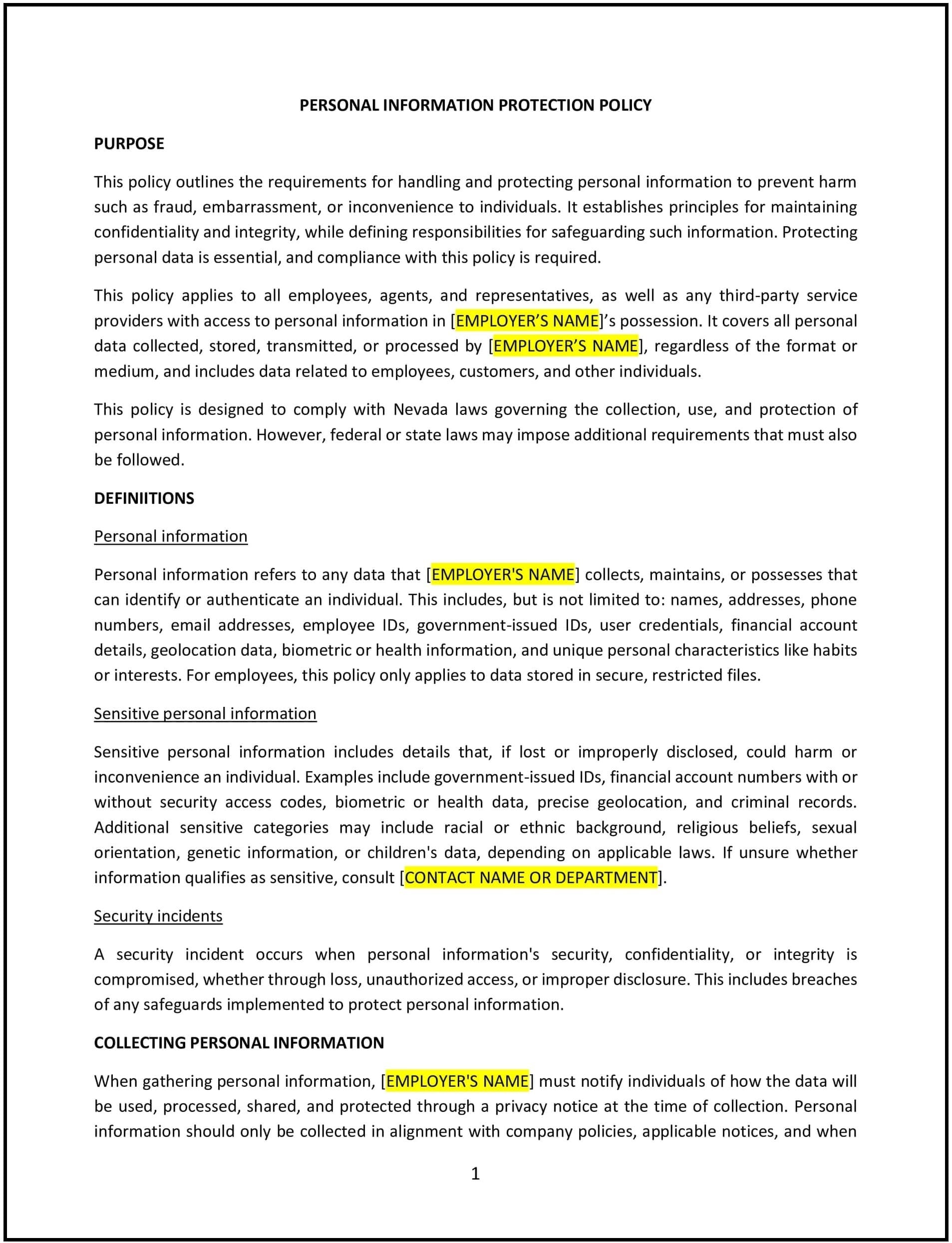Personal information protection policy (Nevada): Free template
Got contracts to review? While you're here for policies, let Cobrief make contract review effortless—start your free review now.

Customize this template for free
Personal information protection policy (Nevada)
This personal information protection policy is designed to help Nevada businesses safeguard the personal information of employees, customers, and other stakeholders. It outlines guidelines for collecting, storing, using, and sharing personal information in compliance with Nevada’s data privacy laws, including the Nevada Privacy of Information Collected on the Internet Act (NPICIA).
By adopting this policy, businesses can reduce the risk of data breaches, protect sensitive information, and build trust with stakeholders.
How to use this personal information protection policy (Nevada)
- Define personal information: Clearly outline what constitutes personal information, such as names, addresses, social security numbers, financial details, and other identifying data.
- Establish data collection guidelines: Specify how personal information is collected, ensuring it is limited to what is necessary for legitimate business purposes.
- Outline storage and security measures: Provide details on how personal information is stored securely, including encryption, access controls, and regular security audits.
- Specify usage limitations: Ensure personal information is used only for the purposes for which it was collected, and prohibit unauthorized use.
- Address data sharing and disclosures: Set guidelines for sharing personal information with third parties, including obtaining necessary consents and ensuring third-party compliance with privacy standards.
- Provide rights for individuals: Outline the rights individuals have under Nevada law, such as accessing, correcting, or deleting their personal information.
- Develop breach response procedures: Establish a plan for responding to data breaches, including notifying affected individuals and regulatory authorities.
- Monitor compliance: Regularly review practices to ensure adherence to this policy and Nevada’s privacy laws.
Benefits of using this personal information protection policy (Nevada)
This policy provides several benefits for Nevada businesses:
- Enhances data security: Protects sensitive information through clear guidelines for storage, access, and usage.
- Promotes legal compliance: Strengthens adherence to Nevada privacy laws, reducing the risk of penalties or legal disputes.
- Builds stakeholder trust: Demonstrates a commitment to protecting personal information, fostering loyalty among customers and employees.
- Reduces risk of breaches: Proactively addresses vulnerabilities to prevent unauthorized access or misuse of personal information.
- Supports transparency: Clearly communicates how personal information is managed, promoting accountability.
Tips for using this personal information protection policy (Nevada)
- Communicate the policy: Ensure employees, contractors, and stakeholders understand the importance of protecting personal information and their responsibilities under the policy.
- Conduct regular training: Provide ongoing training for employees on data protection best practices, such as identifying phishing attempts and safeguarding sensitive information.
- Use secure systems: Implement tools and software designed to protect personal information, such as encrypted databases and secure communication platforms.
- Perform regular audits: Conduct periodic reviews of data protection practices to identify vulnerabilities and improve compliance with Nevada laws.
- Update as needed: Revise the policy to reflect changes in legal requirements, technology, or company operations.